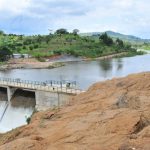President Yoweri Museveni has declared that Uganda cannot be destroyed while the government and other local leaders simply watch, in a move that would make even the most stubborn marabou stork nod in agreement.
Museveni called out the rampant wetland encroachment, “What sort of country is this? How can we accept this? And we are all here; government, ministers, MPs,” he wondered.
Museveni didn’t mince words as he addressed the nation on July 20, 2024. He requested those living in wetlands to leave peacefully, asserting that they have caused enough damage. “We are not prosecuting you, and we cannot compensate you for breaking the law,” he stated, drawing a line as firm as an old-school headmaster with a particularly unruly class.
The National Environment Management Authority (NEMA) has been evicting unauthorized people from wetlands in various districts, such as Wakiso, with the help of police and other security agencies. According to NEMA, 214 households have already been evicted, with plans to evict 101 more. It’s like a massive cleanup, but without the friendly neighborhood LC1 chairman to mediate.
| District | Households Evicted | Pending Evictions |
|---|---|---|
| Wakiso | 214 | 101 |
Under Section 55 of the National Environment Act, 2019, encroaching on wetlands is illegal and carries severe penalties. Imagine finding yourself facing up to 12 years in jail or a fine of up to sh600m, or both, just because you decided to squat in a wetland.
Museveni was quick to point out that those who claim they were born in the encroached wetland areas are not fooling anyone. “We have records tracing the history of the forests and wetlands. We know exactly what happened and when,” he declared, sounding like a stern village elder who’s seen it all.
Museveni didn’t stop there. He warned that encroaching on water bodies, rivers, wetlands, and forests is a recipe for turning the entire country into a dry, rain-starved region like Karamoja. “Wetlands are the source of 40% of our rain. It is so unfair that a small number of wetland encroachers ruin the opportunities of the millions that could irrigate on the dry land,” he said, making it clear that wetlands are more precious than a boda-boda on a busy Kampala street.
He stressed that the issue of wetlands and national forests is more critical than life and death. “It represents a threat of extinction. The question I’m asking you is: are you aware of how crucial these wetlands and local water bodies are to the rain we receive, yet you are still trying to encroach on them?” Museveni asked, likely making some encroachers feel as guilty as a schoolboy caught stealing mangoes.
Museveni observed that destroying a nearby swamp means denying oneself mulches and water for irrigation. It’s like cutting off your nose to spite your face, a foolish move that leaves everyone worse off.
“What sort of country is this? How can we accept this? And we are all here; government, ministers, MPs,” he wondered, echoing the thoughts of many Ugandans who are tired of seeing their natural heritage squandered.
Museveni declared that the National Resistance Movement (NRM) government will take decisive and uncompromising action on issues of life and death, particularly those involving environmental protection.
In a televised address on Saturday, July 20, 2024, Museveni emphasized, “The NRM sometimes uses soft methods to solve problems, even when people are wrong. However, when it is a matter of life and death, we take a decisive and uncompromising stand.”
Museveni’s address covered five main topics:
- Environment (water bodies and wetlands)
- Wealth creation
- Jobs creation
- Regional integration
- Parasitism
Reflecting on history, Museveni recalled evicting people from Mabira Forest in 1986, a significant natural forest spanning Buikwe and Jinja districts. The evictions followed the late President Idi Amin’s directive to convert the forest into farmland, a move Museveni criticized as dangerously ignorant.
“When it comes to the degradation of the environment, especially wetlands, water bodies, and natural forests, it is a matter that is even greater than life and death. It is a threat of extinction,” Museveni stated.
To underline his point, Museveni highlighted the current threats to Uganda’s environment. He warned, “Anyone invading these water bodies, rivers, wetlands, and forests is working hard to turn all of Uganda into a rain-starved region like Karamoja.”
Museveni also showed satellite images of Mabira Forest from 1986 and 1989 to illustrate the forest’s recovery following his intervention.
The President made it clear that the government would not compensate individuals who illegally occupy wetlands. “The people in the wetlands should vacate peacefully. We cannot compensate you for breaking the law. If we do, it would only encourage this behavior. We have already compensated you by not prosecuting you,” he said.
The National Environment Management Authority (NEMA), with the assistance of the police and other security agencies, has been actively evicting unauthorized occupants from wetlands in districts such as Wakiso. NEMA’s records indicate that 214 households have been evicted, with plans to evict 101 more.
Encroaching on wetlands is illegal under Section 55 of the National Environment Act, 2019. Offenders face severe penalties, including up to 12 years in jail, a fine of up to sh600 million, or both.
| Issue | Action Taken | Outcome |
|---|---|---|
| Wetland Encroachment | Evictions by NEMA and security agencies | 214 households evicted; 101 more planned |
| Environmental Degradation | Historical intervention (Mabira Forest) | Forest recovery demonstrated |
| Legal Penalties | Section 55 of the National Environment Act | Up to 12 years jail, fine up to sh600m |




















